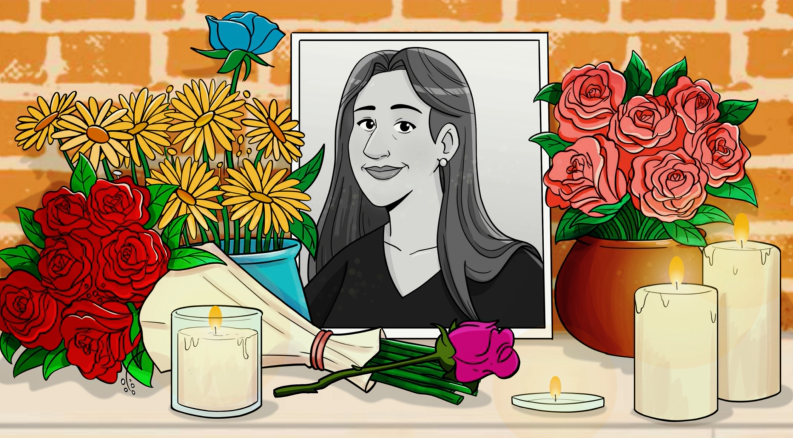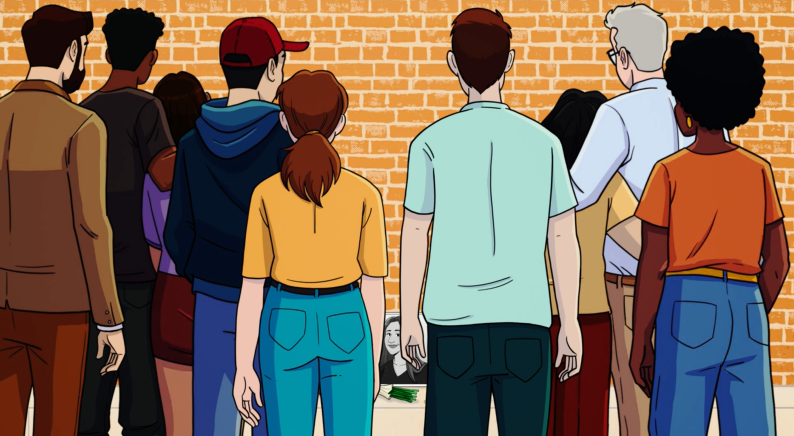
YWCA Canada’s Rose Campaign is a national advocacy campaign to end violence against women, girls, and gender diverse people. Named after the original rose button that commemorated the murder of 14 young women on December 6, 1989, the Rose Campaign calls on Canadians to mourn and use the symbol of the rose to act, educate, and work towards creating change. Our fight will continue in their memory until our streets, campuses, workplaces, and our homes are safe.
Below, you’ll find toolkits filled with tips on how you can participate in the Rose Campaign, ways to donate to YWCA Canada, and the opportunity to reach out to your local elected officials to create change that has a lasting impact.
Ways to Get Involved
Download our Toolkits and Digital Assets
Write a Letter to All Elected Officials
Lay a rose to remember, but do not stay silent like a rose.
In commemoration of the 35th anniversary of the tragic mass femicide at École Polytechnique, where 14 women lost their lives, YWCA Canada is launching a powerful national appeal: “Roses Can’t Speak, But You Can”.
Roses are often seen as symbols of beauty and remembrance but imagine if they could do more. What if these silent symbols could unlock real action, break the silence and demand meaningful change?
At YWCA Canada, we want roses to represent more than just sentiment—we are calling for action that will save lives.
Together, let’s ensure that every rose represents not just grief, but an action that will be taken towards creating a safer, more equitable world for all women, girls and gender diverse individuals.
Join us in scaling gender-based interventions and prevention programs and supporting survivors.
Together, let’s ensure no more roses are laid, and no more lives are lost.

Why We
Should Act
In Canada, 1 woman or girl is killed every 48 hours.
In 2022, a total of 868 children were left without mothers due to femicides.
The number of killings of women and girls has risen almost 30% since 2019.
While information about race and ethnicity are not always available, it is estimated that 1 in 4 victims are Indigenous women.
Nearly 1 in 2 women report having experiencing harassment or sexual assault in the workplace.
35% of the racialized women reported ever experiencing harassment or sexual assault in the workplace.
Employees aged 25 to 34 years report the highest rate of experiencing harassment or sexual assault in the workplace.
58% of women with disabilities reported experiencing harassment or sexual assault in the workplace.
43% Indigenous women experienced harassment or sexual assault in the workplace.
Over 1 in 3 immigrant women reported ever experiencing harassment or sexual assault in the workplace.
Approximately 30% or Canada’s homeless population is women, 91% of whom reported enduring some form of gender-based violence in their lifetime.

With 29 locations across Canada, YWCA Canada is in position to end gender-based violence with prevention programs, interventions and support to survivors. YWCA is the largest provider of women’s shelters, helping to ensure women, girls, and gender diverse individuals can flee unsafe situations.
By supporting YWCA Canada, you are adding your voice to our collective call to end gender-based violence and support for survivors. Your support will:
- Enhance Support Services for Survivors: Expanding access to emergency support for survivors.
- National Outreach and Education: Developing assets that educate the public on recognizing and addressing gender-based violence.
- Policy Advocacy: Working to influence policy changes that strengthen protections for survivors and hold perpetrators accountable.
- National Research and Awareness Building: Funding research to better understand the root causes of gender-based violence, listening to the needs of survivors and raising awareness across Canada to foster a culture of response, respect and equality.
Turn collective grief into collective action that builds a safer, more equitable future.


Everyone can do something to end violence against women and girls. There are many small ways to move forward on ending violence. Participate in the Rose Campaign by planning activities, actions or events in your workplace to raise awareness and inspire action.
- Download YWCA Canada’s Rose Campaign Engagement Toolkits
- Share our ‘Roses Can’t Speak, But People Can’ Campaign across your social channels
- Become a Donor and help fund programs designed to end gender-based violence and support survivors across Canada
- Text 🌹or ROSE to 20222 to donate
For more information on how you can participate and make a difference, please reach out.
Let’s ensure that our voices are heard, and our actions speak louder than ever.


YWCA Canada’s Rose Campaign is a national advocacy initiative dedicated to ending violence against women, girls, and gender diverse individuals. Named after the original rose button created to honor the 14 young women murdered on December 6, 1989, at École Polytechnique in Montreal, the campaign seeks to turn a symbol of remembrance into a powerful call for action. This tragic mass shooting, in which a man specifically targeted female engineering students, deeply shocked and outraged Canadians nationwide.
The loss of these young women became a powerful catalyst for change, sparking a widespread movement to address and combat gender-based violence. December 6 is now recognized as Canada’s National Day of Remembrance and Action on Violence Against Women, a day dedicated to honoring the victims of gender-based violence, supporting survivors and advocating for a safer future for all women, girls and gender-diverse individuals.
Together, we remember: Geneviève Bergeron, Hélène Colgan, Nathalie Croteau, Barbara Daigneault, Anne-Marie Edward, Maud Haviernick, Maryse Laganière, Maryse Leclair, Sonia Pelletier, Michèle Richard, Annie St-Arneault, Annie Turcotte, Barbara Klucznik-Widajewicz, and Anne-Marie Lemay.










